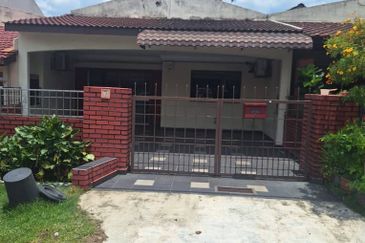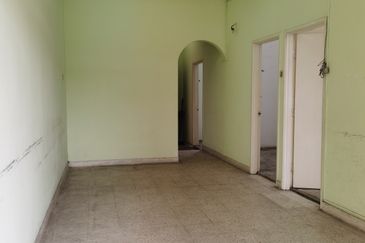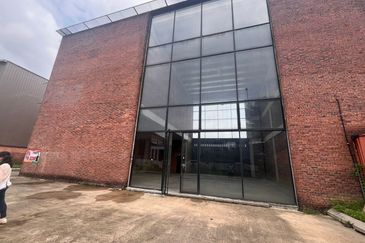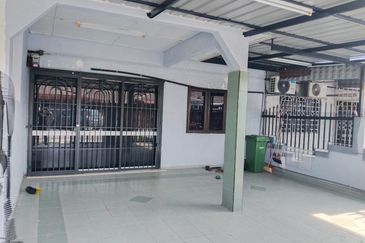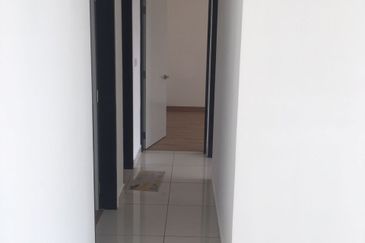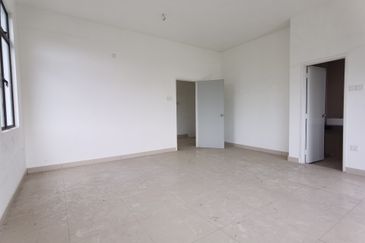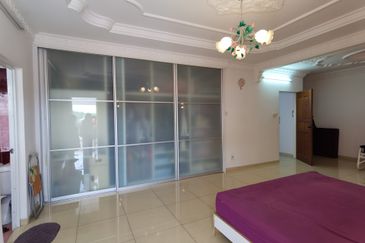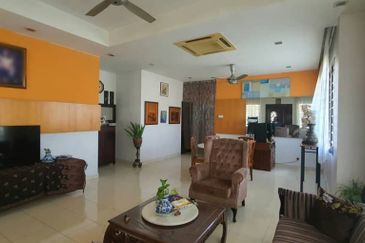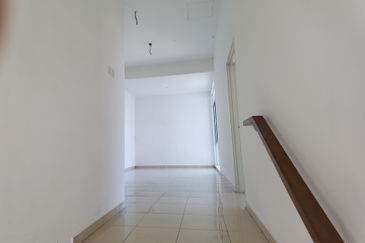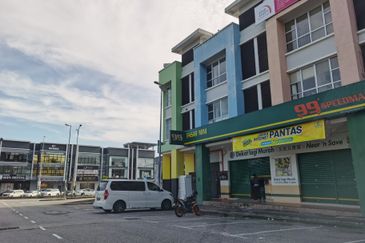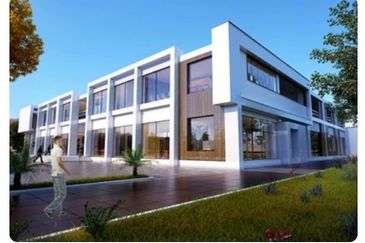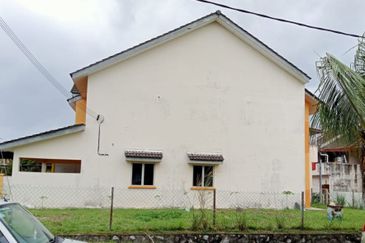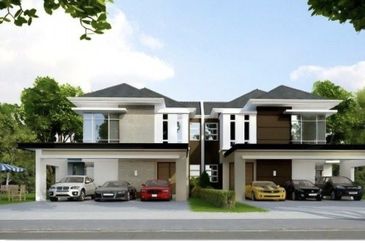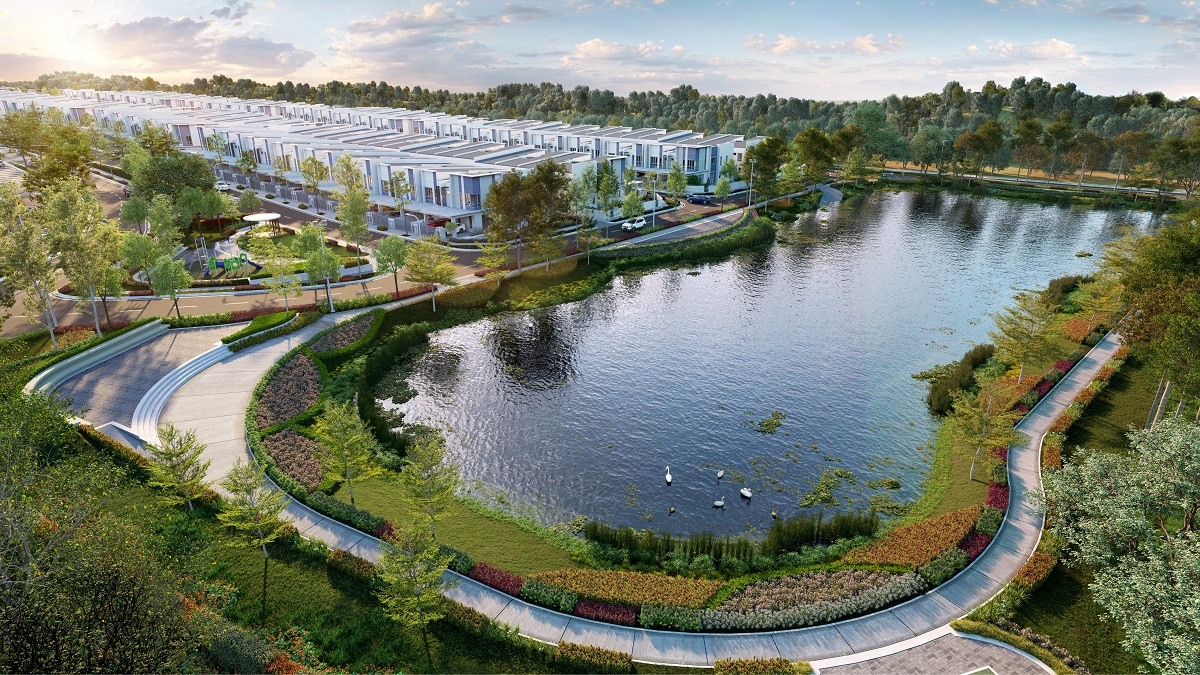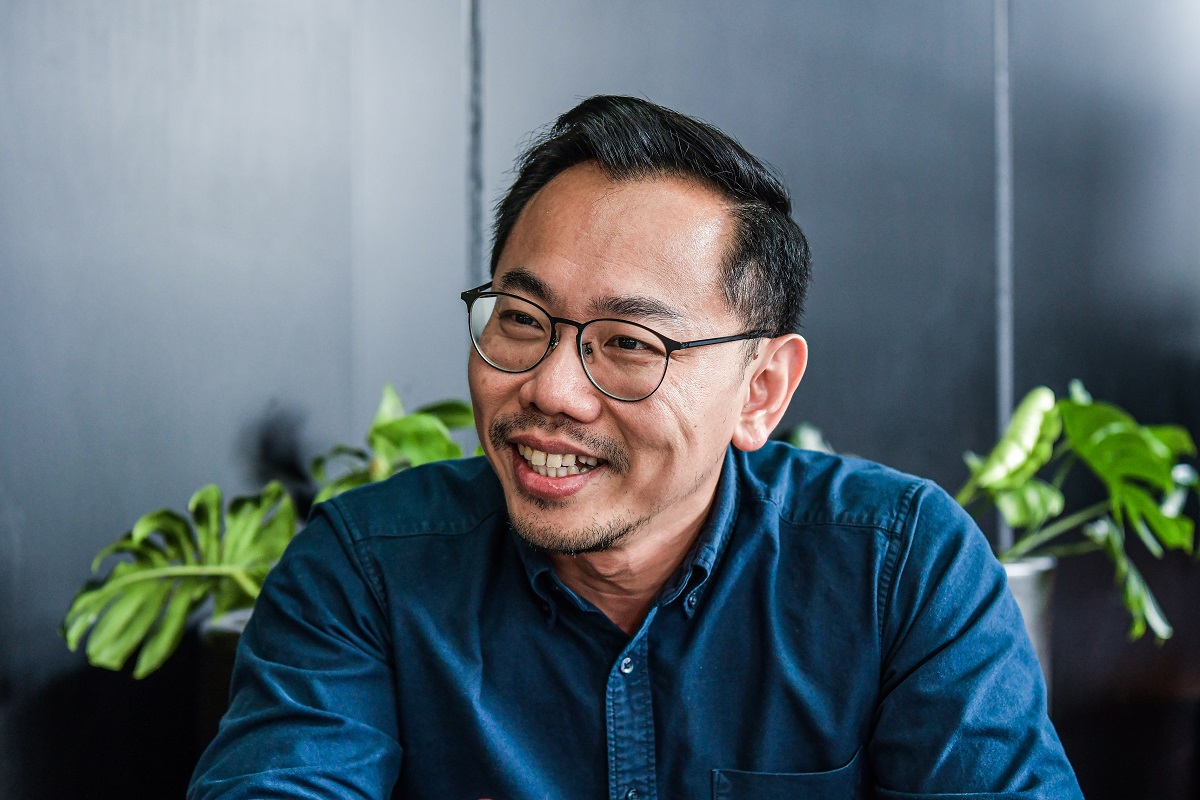
- “We had offers and ready opportunities in Kota Kinabalu, Melbourne and Maldives, but we wanted Sarawak because there is so much going for it – its growth and optimistic possibilities.”
- He disclosed that studying the supply and demand revealed a shortfall of 1,300 dwellings every year for the next few years.
KUALA LUMPUR (June 22): Confident, savvy and sharp – these three adjectives come to mind when you meet Albert Ko, founder and director of EXAL Group, an Australian property developer. The same attributes are reflected in his property development company, which not long ago launched SÓL Estate, its maiden foray into Malaysia located 10 minutes away from Kuching central business district in Sarawak.
Entering the market at a time when the world’s economy came to a grinding halt, it’s either a bold or miscalculated move, but digging deeper into the psyche of Albert Ko, the answer seems obvious.
In a one-to-one with Edgeprop, the engineer-turned-property developer dished out the granules on how the venture came to be and why he is confident of its success despite the gloomy property outlook and reports of property overhang. Ko, a glass-half-full person tells how he focuses on the filled half instead of the void, forging resources to seek out an underserved niche, and wields it for opportune prospects.
From engineering to property development
It began with a fascination with the industry that turned into a passion. Ko explained that in Australia, property ownership is common, with 1 in 3 of the population owning at least one property. The low-entry barrier for property development attracts many small players or “mom & dad” developers, as Ko called them, who generally build two to five units on their own land.
“There, land owners rarely JV (join venture) with developers, because they can just develop their own properties. Approvals, the banking system, and the entire value chain are supportive and information is transparent. In economics we call this an efficient market,” he elaborated.
In an absolute market like Australia where everything is online, and planning and development frameworks are readily available, Ko found the pull into property development then easier to follow than if he were in Malaysia, where the entry barrier is high and information is restricted.
He started slow, as a passive investor, dabbling in the rental market, before taking on simple renovation projects, then moving on to becoming a boutique developer managing five to 10 units. He then scaled up to 50 units and eventually expanded into more residential developments.
“I see a property developer as a conductor in an orchestra – getting different people to play different instruments according to the same tune. Many skill sets are required to play this role, from being able to envision the piece being executed, to finding the right people. But mostly, to manage the multiple parameters, you must be good at project management,” he said passionately.
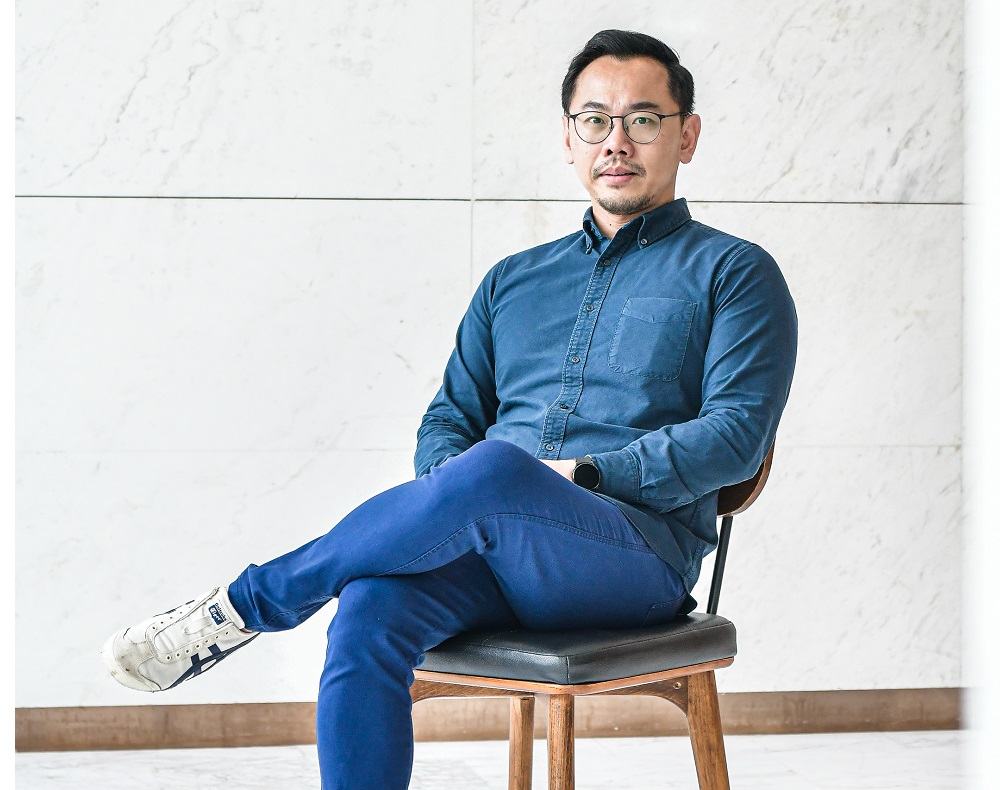
To this end, Ko discovered that his meticulous engineering background and certification in project management have been transferable skill sets in property development, especially in managing the problems that surface during project execution, which are likely to affect project delivery.
Noting that he has an innate ability to break down complex situations and simplify frameworks, the transition for him was natural.
Why Land of the Hornbills?
It is widely assumed that Batu Kawa, Sarawak is the chosen location for his maiden project because Ko had really been a Sarawak boy before his entire clan left for Australia in the 1990s. According to the 41-year-old developer, while it has been a contributing factor, it is Sarawak’s remarkable potential that has drawn him back.
“We had offers and ready opportunities in Kota Kinabalu, Melbourne and Maldives, but we wanted Sarawak because there is so much going for it – its growth and optimistic possibilities.
“We know we have made the right move because we have come to know that a lot of banks are very bullish on Sarawak,” Ko explained.
Furthermore, Ko added that Sarawak’s political stability and proximity to Nusantara, Indonesia’s new capital city, are also significant factors.
While diversifying out of Australia had always been EXAL Group’s strategy, Southeast Asia has been on its radar for its rapid growth momentum.
According to Ko, EXAL Group’s strategy is always to kick off with a landed development as part of its risk mitigation. Batu Kawa in particular has been selected for the 10 to 15 growth triggers identified in the area, ranging from intrinsic factors of accessibility, infrastructural development and proximity to amenities, to government initiatives in the pipeline that will potentially spur growth.
Know the challenges, know the market
For a developer familiar with the Australian market, it’s curious why EXAL Group would enter the already saturated property development market in Malaysia. However, Ko sees potential in Malaysia, and Sarawak in particular, despite the little kinks present such as the absence of a planning framework.
“There’s no different zoning and plot ratios to tell you what you can and can’t build as you see in Kuala Lumpur. In Sarawak, you just have mixed zones, so you can build residential, industry, commercial, high density or low density. But I can tell you 101 things that are bad about it, or I can tell you more than 101 things that are good. I see it as a blank canvas to do the good things,” he said.
With about 25 years of combined experience, Ko promises to deliver on the group’s guiding credo “better ways of living, beyond buildings.” Bringing its experience of building award-winning residential developments in Perth, EXAL Group has discovered an unmet niche, driven by the emerging buyers of Gen Z, seeking aspirational living centred on their needs. The new demand has a different family composition – smaller households and multigenerational living, set with blurred boundaries between indoors and outdoors for connection with nature.
This is what SÓL Estate offers – a modular interior space which features progressive, contemporary designs and spaces for well-being and healthy lifestyle. The development incorporates passive designs for energy savings like solar-oriented structures and natural ventilation as well as rainwater harvesting and stormwater management systems. Built over three acres with a dawn to dusk concept, dwellers can enjoy an orchard forest and community farm, a hilly play yard for children, water feature and maze, outdoor fitness facilities, a street basketball court and eco terraces.
“As developers the onus is sometimes upon us to learn from difference parts of the world, marry it with some inspiration and give our buyers what is best for them. They may not always know what they want, but we know what we can offer them,” Ko defined the emotive role of a developer.
Driven by big data analytics
Ko noted that property development in Sarawak is very much driven by the developers’ “gut feel” and experience, as most of them have been in the market for decades.
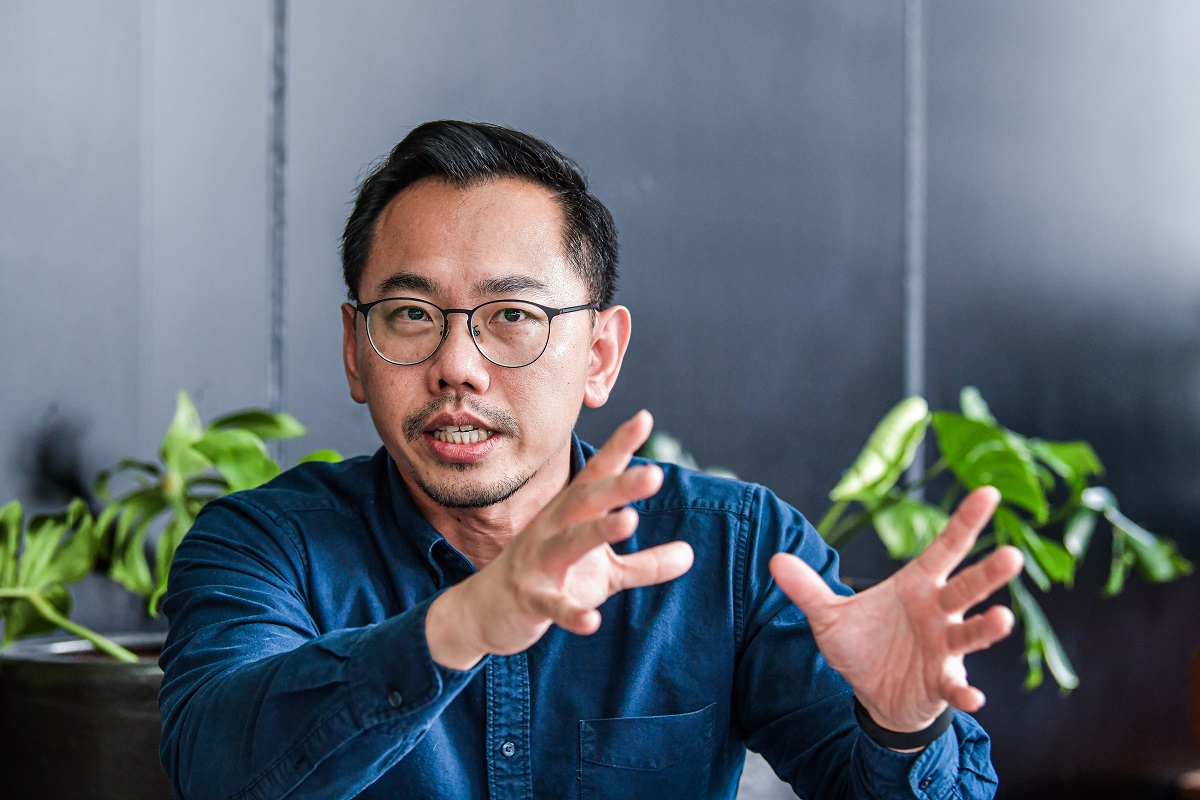
However, “I always believe what got us here may not get us there because the world has changed, people have changed, and systems and technology have changed,” he said.
With little insight into the area, Ko has engaged a data analytical company to get clean data on demographics and the supply and demand dynamics to understand from a quantitative perspective in terms of the age group, population growth, spending power and household income. EXAL Group has also obtained migration data to understand the traction of sale and purchase in the area
“We target the millennials, in the 20-40 age bracket. So we studied their affordability, values and behaviour. What they look for and how we can market to them – we have incorporated all these into our development,” Ko stated.
He disclosed that studying the supply and demand revealed a shortfall of 1,300 dwellings every year for the next few years, and the study also revealed that 80% prefer landed.
“So we are at about 1,100 that prefer landed. With incoming supply of about 500-600 a year, there is still a shortfall of 2 to 1. That is why I am not into blanket statements of property overhang. I like to dive deep into what the data says,” he explained.
Confident its first project in Malaysia will be a success, EXAL Group is in negotiations to notch up its presence in Sarawak through an integrated mixed development project in an aim to elevate the people’s live-work-play lifestyle and bring them “something never seen before”.
“Due to traffic congestions, busy lifestyles and cost of fuel, self-sustaining townships are sought after, incorporating retail, wellness, education and office.”
In the medium to long-term, Ko said EXAL Group is looking to expand into the retirement and co-living space. Cognisant of the Gen Z’s preference of “shared spaces and resource”, Ko believes there is growth in the build-to-lease space and co-living space in the near future.
SÓL Estate has a gross development value of RM365 million, featuring 269 homes across three phases. The first phase, comprising 42 double-storey duplexes and 32 double-storey courtyard homes is 70% sold, while the rollout for Phase 2 is slated for 4Q2023.
TOP PICKS BY EDGEPROP
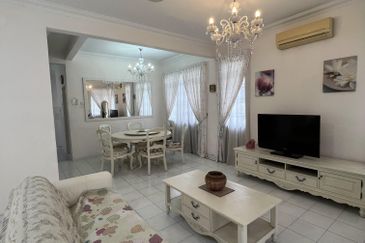
Setia Impian, Setia Alam
Setia Alam/Alam Nusantara, Selangor
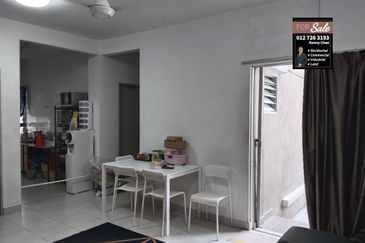
Pangsapuri Akasia, Bandar Botanic
Bandar Botanic/Bandar Bukit Tinggi, Selangor
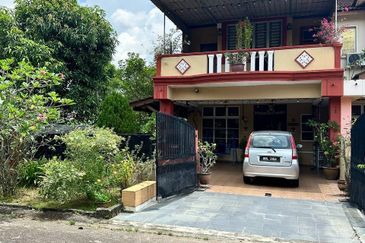
Taman Bukit Indah @ Iskandar Puteri
Johor Bahru, Johor
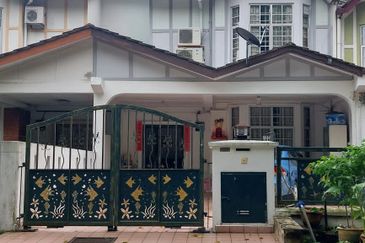
Taman Bukit Rahman Putra
Sungai Buloh, Selangor
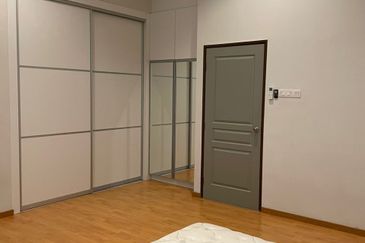
ZETA PARK @ CITRA HILL
Seremban, Negeri Sembilan
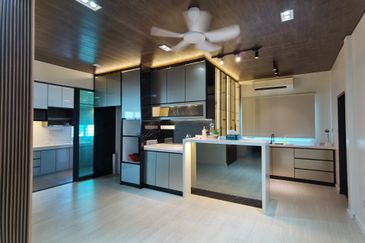
Taman Senawang Perdana
Seremban, Negeri Sembilan
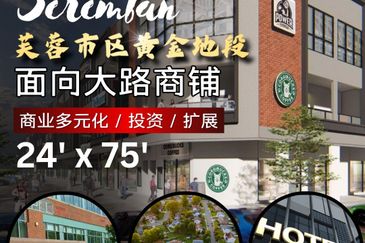
Pusat Komersial Lobak
Seremban, Negeri Sembilan

